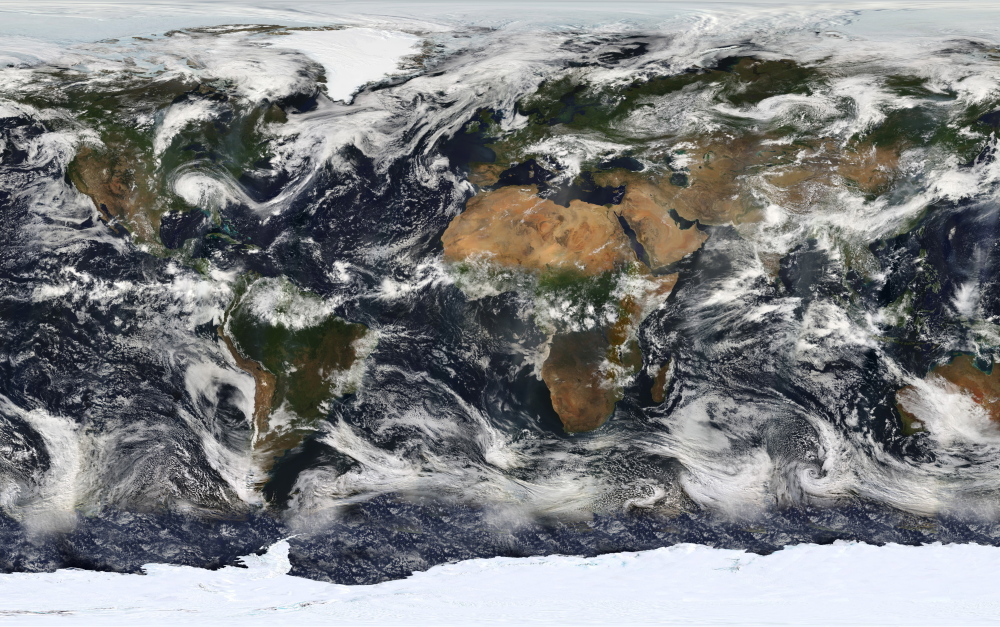We keep hearing that this is a sharply divided nation in which people won’t agree on the time of day.
No issue seems to be more polarized than climate change, especially when the airwaves are full of debates contesting whether it’s an impending cataclysm or a Chinese hoax.
But what if all that noise didn’t reflect what most people are coming to understand to be the truth of global warming?
The question is usually put as “Do you believe in climate change?” and unless you can find consensus on the answer, the political and economic decision-making process that follows is hopeless.
However, evidence is emerging that we may be a lot closer to that consensus than you would think from listening to talk radio, or scrolling through the reader comments on a newspaper website. Yale University’s Program on Climate Change Communication has used national surveys and sophisticated modeling to gauge public opinion on a series of important questions that show that the leaders appear to be far more divided than the people.
These findings are a rare whiff of good news from a corner of our democracy that has provided mostly stale air. Policy makers on the federal and state level should look at these numbers and see that the public is more ready than they might have believed for them to act.
First off is the threshold question: “Is global warming happening?”
According to the Yale estimates, 70 percent of Americans would say “yes” and only 12 percent say “no.” That’s not the near unanimity you see among actively publishing climate scientists, but it’s a much stronger majority than you would see for a candidate in any national election.
The statewide numbers for Maine are right in line, with 69 percent who say “yes,” and only 14 percent who say “no.”
Whether it’s mostly a man-made phenomenon is a closer call, but a solid 53 percent say it is, while only 32 percent believe that we are only experiencing natural cycles that have happened throughout history. That trend continues in Maine, where there is a solid 20-point margin in favor of the view that human activity is causing the change.
Perhaps most significantly, 71 percent of Americans trust climate scientists, according to the estimates, while only 26 percent do not. Compare that with the approval rating for Congress (16 percent), or the president (37 percent), and you can see that trusting science is far from controversial.
It is strange but true that as the politics of this issue have become more fractious, the scientific consensus has gotten increasingly solid. Reviews of peer-reviewed studies that ask whether global warming is affected by human activity have found between 97 and 100 percent agreement that it is.
The journal Theoretical and Applied Climatology recently published a review of the studies that claim to disprove anthropogenic global warming and found that the outliers contained numerous mistakes. “A common denominator seems to be missing contextual information or ignoring information that does not fit the conclusions, be it other relevant work or related geophysical data. In many cases, shortcomings are due to insufficient model evaluation, leading to results that are not universally valid but rather are an artifact of a particular experimental setup. Other typical weaknesses include false dichotomies, inappropriate statistical methods, or basing conclusions on misconceived or incomplete physics.”
Every American can’t conduct his own climate study, or even review all the scientific literature. So it’s important to see evidence like the Yale study that shows that most people believe the scientists and know that the scientists believe that the planet is warming as a result of human activity.
The Yale surveys show strong support for increased research in alternative energy (82 percent), regulating carbon dioxide as a pollutant (75 percent) and mandated renewable energy production for utilities (66 percent), all ideas that have been considered politically divisive in the recent past.
Polls are not perfect reflections of public opinion – the last presidential election is proof of that. But this data set should show policymakers who have been slow to step forward that it’s not just the planet that’s getting warmer – the political climate might be changing as well.
People can see that pond ice doesn’t stick around as long as it used to, and that sea-level rise is already causing expensive infrastructure problems. They can project what they’ve seen in their own lives onto what might happen in the lives of their children and grandchildren.
Americans may not agree on much, but people are starting to agree on this: Scientists are predicting dire consequences unless we reduce the amount of greenhouse gases we pump into the environment.
The real question isn’t what we “believe” but what we are going to do about it.
Send questions/comments to the editors.


